Circular Economy Stakeholder Forum in Nairobi
20th June 2024: EIT Climate-KIC and GrowthAfrica, in collaboration with the Nairobi Climate Network, hosted a Circular Economy Stakeholder Forum in Nairobi at the Dusit Princess in Westlands. This event builds on the “Circular Economy Innovation Cluster Initiative”, launched in 2023 with the support of the IKEA Foundation. The event aimed to kick-start a self-sustaining circular economy innovation cluster to advance circularity in Nairobi.

A Circular Economy Cluster for Nairobi:
Funded by the IKEA Foundation, and with EIT Climate-KIC and GrowthAfrica as the delivery partners, this initiative seeks to build “innovation clusters” in Nairobi, Kenya, and Bengaluru, India.
“Through this approach, we focus on activating entrepreneurial activities in a cohesive and systemic way. We aim to build a locally embedded innovation ecosystem that includes entrepreneurs, local government, policymakers, academia, CBOs, and investors. In these stakeholder forums we come together to listen, learn, inspire, and define collaborative actions to drive circularity further in Nairobi,” said Emily Amann – Entrepreneurship Orchestrator at EIT Climate-KIC.
Njenga Muchekehu, a member of NCN and C40’s City Advisor to Nairobi, gave a keynote highlighting Nairobi’s climate action plan and its focus on energy, buildings, and waste management.
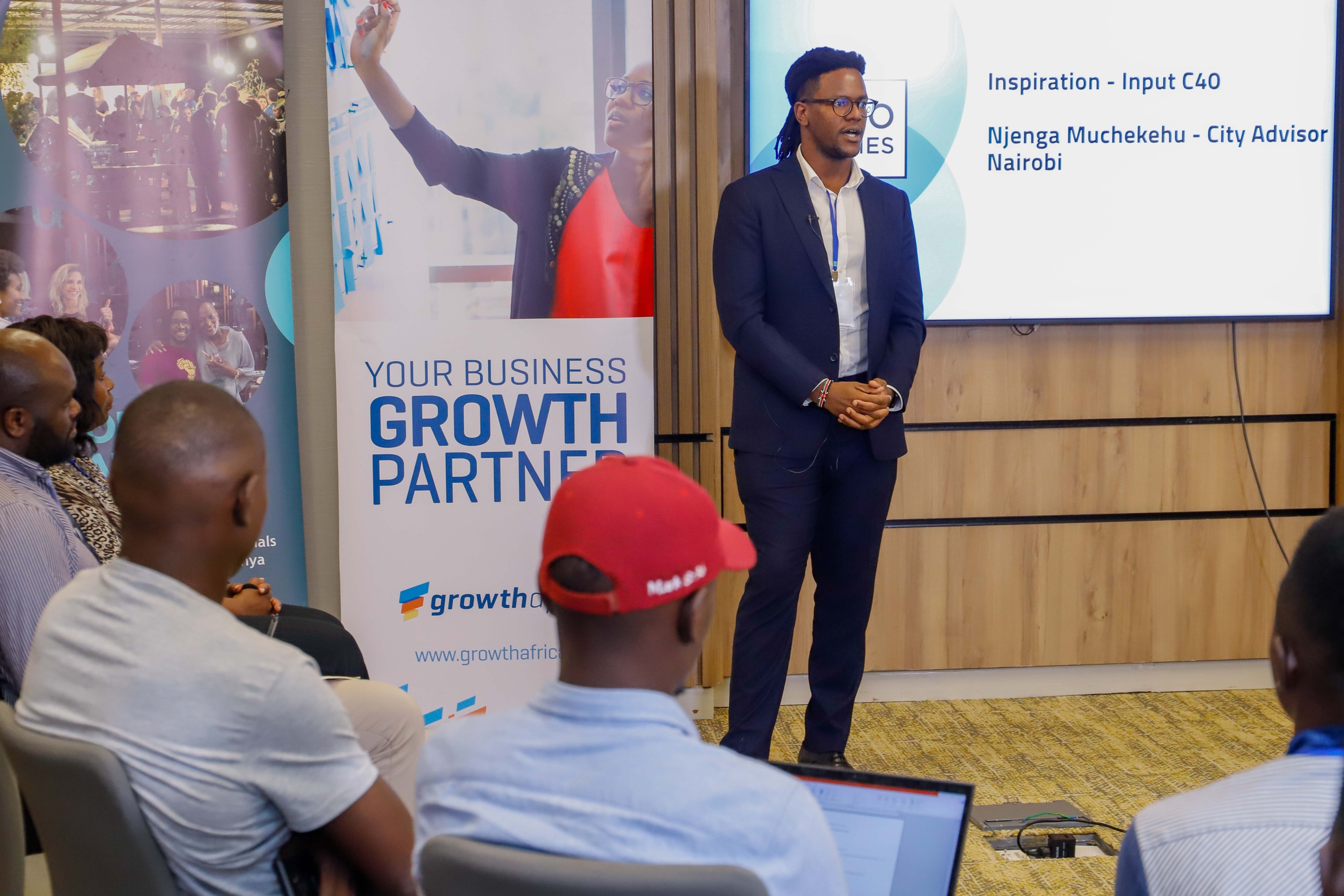
“The Nairobi City County Government, supported by C40 Cities, under the UCAP Climate Action Implementation (CAI) Africa Programme are currently working on reducing emissions from municipal buildings and diverting organic waste from the Dandora dumpsite, but the question remains: to where? To address this, we are developing collection and separation capacity for organic waste at fresh produce markets across Nairobi City County. There are entrepreneurs who earn their living from waste, and we cannot remove them from the value chain. Inclusive climate action in the energy and waste sectors present excellent opportunities to create much-needed good, green jobs.” Njenga Muchekehu, City Advisor – Nairobi, C40 Cities
He emphasised the need for inclusive strategies that incorporate the private sector, cities, and community-based organisations (CBOs) to achieve effective waste management.
James Odongo from the Kenya Extended Producer Responsibility Organisation (KEPRO) shared insights into the Extended Producer Responsibility (EPR) and its role in Kenya’s circular economy. He explained that the EPR recently became law, ensuring that producers are responsible for managing their products throughout the product life cycle, up to post-consumption or end-of-life. Waste pickers will also benefit from EPR, as KEPRO, acting as the intermediary, ensures that funds from manufacturers are directed to waste collectors, promoting a circular economy.
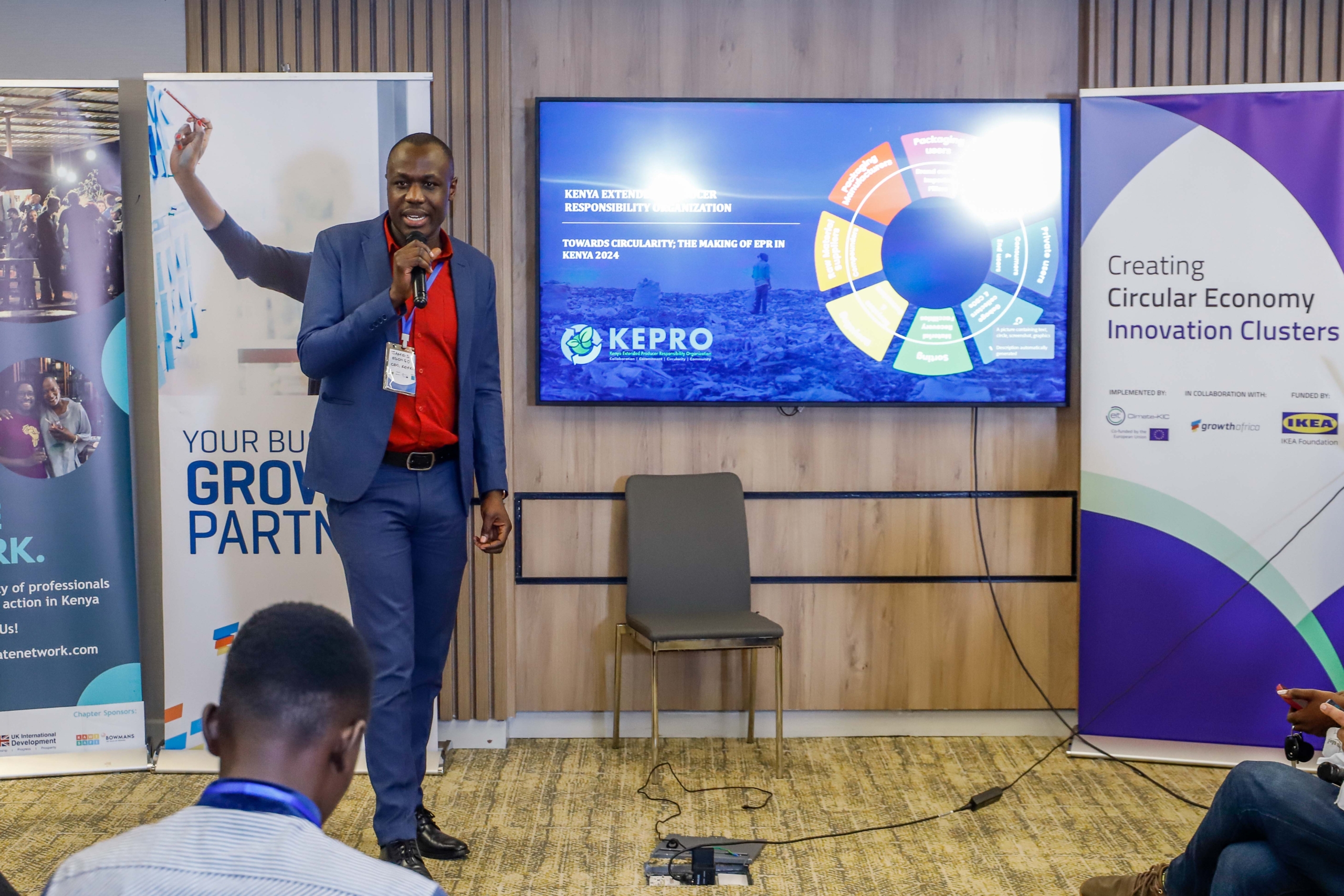
Case Studies and Challenges
10 entrepreneurs who are part of GrowthAfrica´s and EIT Climate-KIC´s “Nairobi Circular ClimAccelerator Programme” presented their circular economy innovations and the industry-specific challenges they face:
🔹 Nelly Oteki of Green Thing: a company providing eco-friendly personal care essentials and non-toxic cleaning products to homes and organisations. She highlighted the need for better finance access, improved technical expertise, business mentorship, and better equipment.
🔹 Miraj Shah, Founder of Crofts LTD: a producer of quality edible and cosmetic grade avocado oil. He highlighted the challenge of managing organic waste and water usage from their production.
🔹 Derrick Ngigi of Pure Plant Organics: who recycles organic waste to produce eco-friendly farm inputs highlighted the lack of certification bodies for the industry making it hard for them to sell their products.
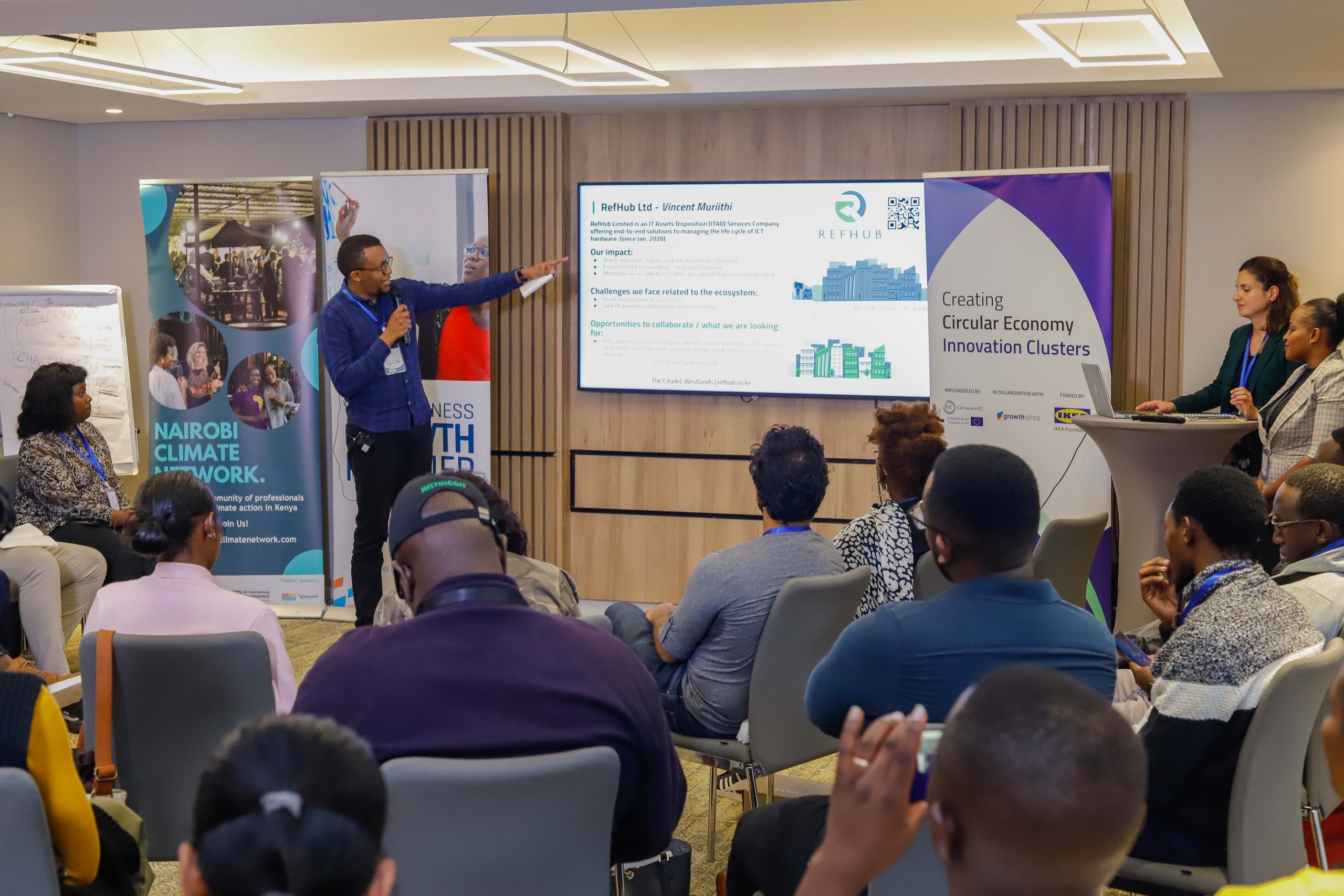
🔹 Gloria Kisilu from The Shaba: who provides a platform that bridges the gap between rural women involved in sustainable crafts using sisal and the market highlighted the lack of international market access and advisory support.
🔹 Charles Kanyoi of Rware Waste Dealers LTD: involved in recovering recyclable waste such as plastics, aggregate paper, and metallic waste for recycling. He highlighted challenges involving bureaucracy, licensing, and lack of awareness of proper waste disposal.
🔹 Nyandia Kamawe from MokoMaya Home Decor: who created of handmade home garden and office decor using glass bottle waste highlighted a lack of equipment, limited learning resources, and poor streamlining of waste collection.
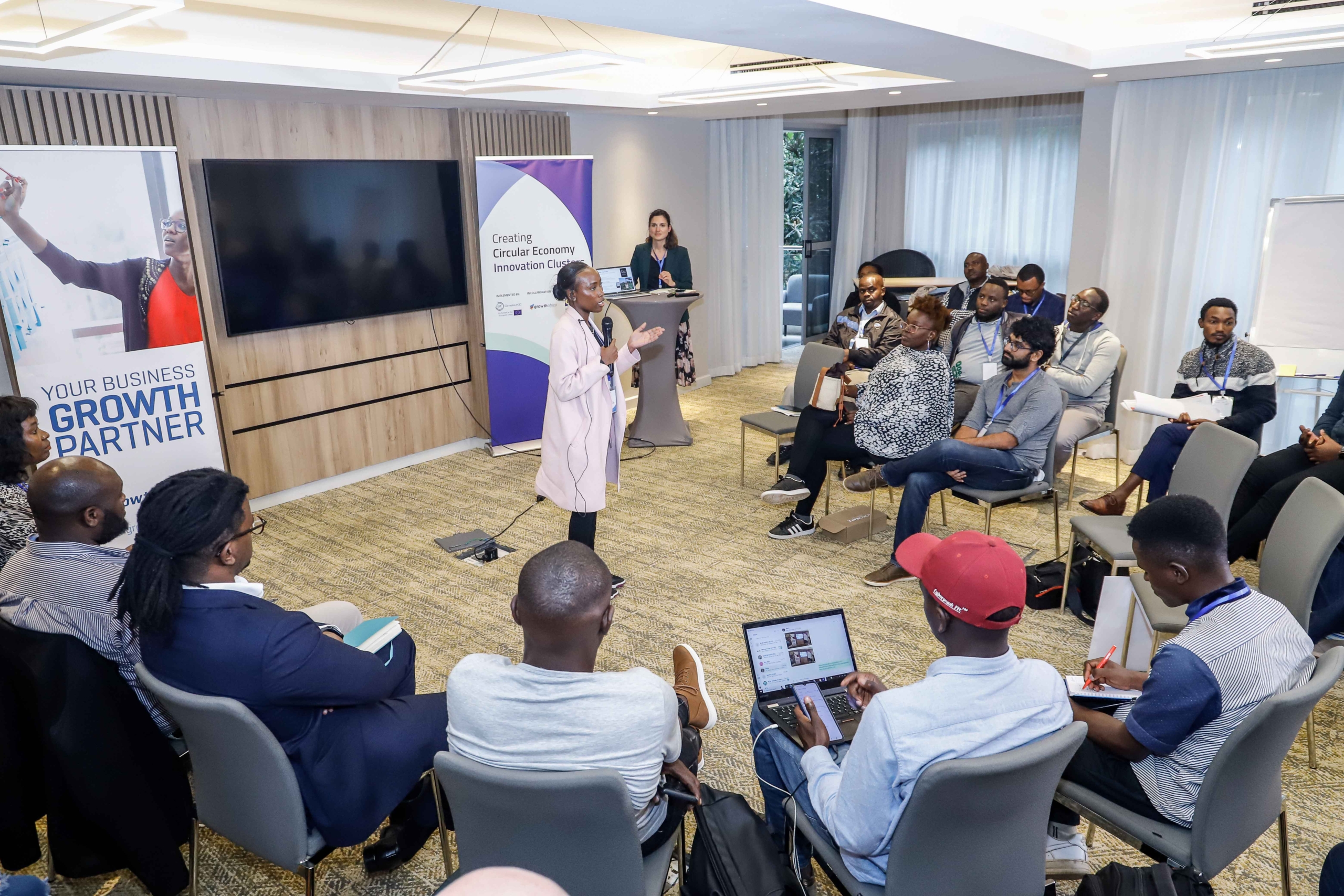
🔹 Vincent Muriithi from RefHub Ltd: an IT Asset Disposition (ITAD) company highlighted the lack of proper asset disposal policies and public awareness of electrical waste disposal.
🔹 Dismas Owino from Green Miles Zero Waste Services Limited: an onsite waste management system, revolutionising waste disposal and recycling eliminating the need to dispose of domestic and commercial waste in landfills highlighted the challenge of non-regulated garbage collection and disposal functionalities and social awareness on sustainable waste management.
🔹 David Ngechu from Taka Mali Commercial LTD: a woman-led organisation creating a sustainable waste management ecosystem by leveraging technology to create visibility and improve efficiency. He highlighted the lack of tech skills in waste management.
🔹 Winnie Wambui from Harcourt Afri-Eco Farm Ltd: who provides alternative animal protein by using organic waste to farm Black Soldier Fly. She highlighted the lack of adequate tech to increase the longevity of organic waste and negative stereotyping toward waste-centric businesses.
Collaborative Actions and Breakout Sessions Outcomes
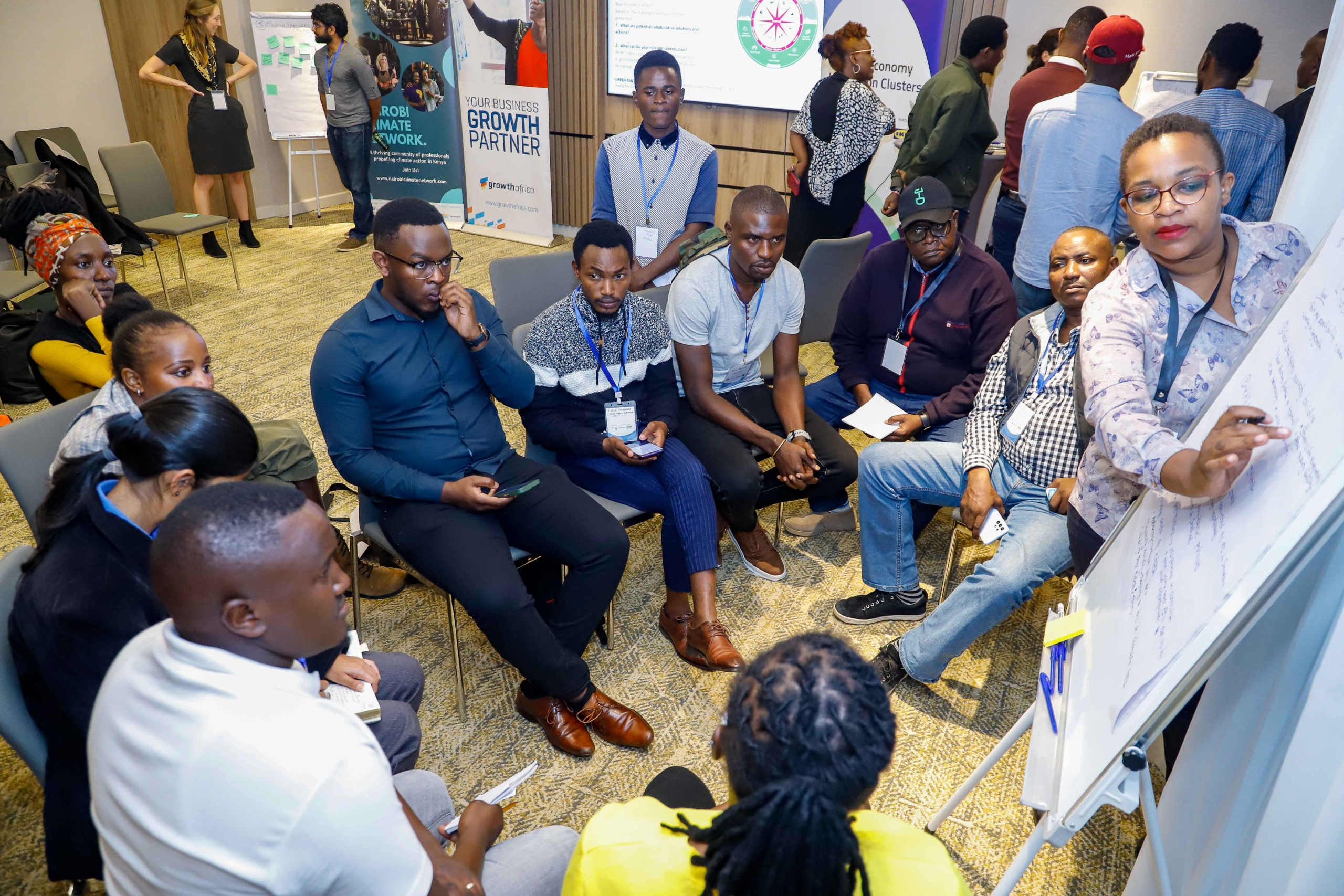
Participants then split into breakout groups to discuss solutions and potential collaborative actions in five different areas: Finding Partners and Collaborators, Technical Expertise, Awareness, Policy Regulations and Bureaucracy, and Finance.
🔹 Finding Partners and Collaborators: Participants emphasised the need for forums to facilitate sharing and collaboration. They also identified the importance of establishing data centres and banks, as well as matchmaking services to connect potential partners. Additionally, the group discussed the need for external communications and exchange programs to foster collaboration and knowledge sharing. Participants not already part of the Network were pleased to hear that NCN offers many of these collaboration opportunities.
🔹 Technical Expertise: Participants highlighted the need for government and educational institutions to partner in developing standards for various sectors. They discussed the importance of sharing specialised production resources and zones, such as those provided by KIRDI to reduce production costs. The group recommended that manufacturers create detailed specifications of their products and share them with regulatory bodies like KEBS for ease of licensing.
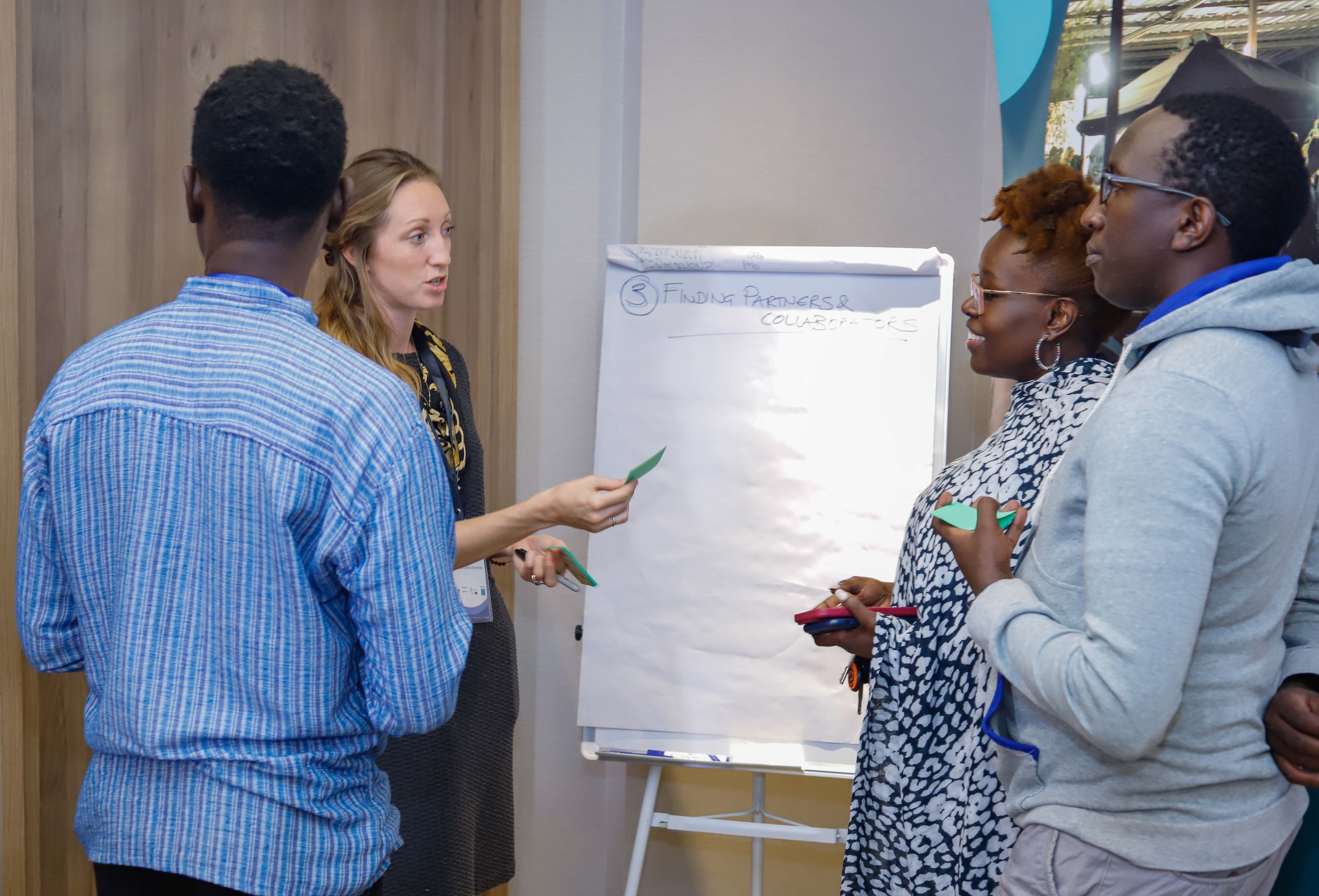
🔹 Policy Regulations and Bureaucracy: Participants stressed the importance of raising awareness by sharing legislation between the private and public sectors. They emphasised the need for private entities to work together and collaborate more effectively. The group discussed streamlining licensing processes and zero-rating cess between counties, as well as ensuring that all counties adopt consistent policies to allow for ease of operations.
🔹 Awareness: Participants underscored the need for civic education on waste segregation through digital and traditional media. They also highlighted the importance of capacity building for government staff to develop effective systems and target residential associations for similar training. Additionally, the group discussed the need for appropriate service providers, incentives for buy-back principles, and incorporating waste management into school curriculums. Advocacy through KEPSA was also identified as a key strategy for raising awareness.
🔹 Finance: Participants emphasised the importance of building awareness among investors and financiers to get buy-in. They discussed the need for intermediation and financing, CAPEX financing, and exploring alternative financing solutions. The group highlighted the value of collaborating in asset financing to support circular economy initiatives.
Next Steps
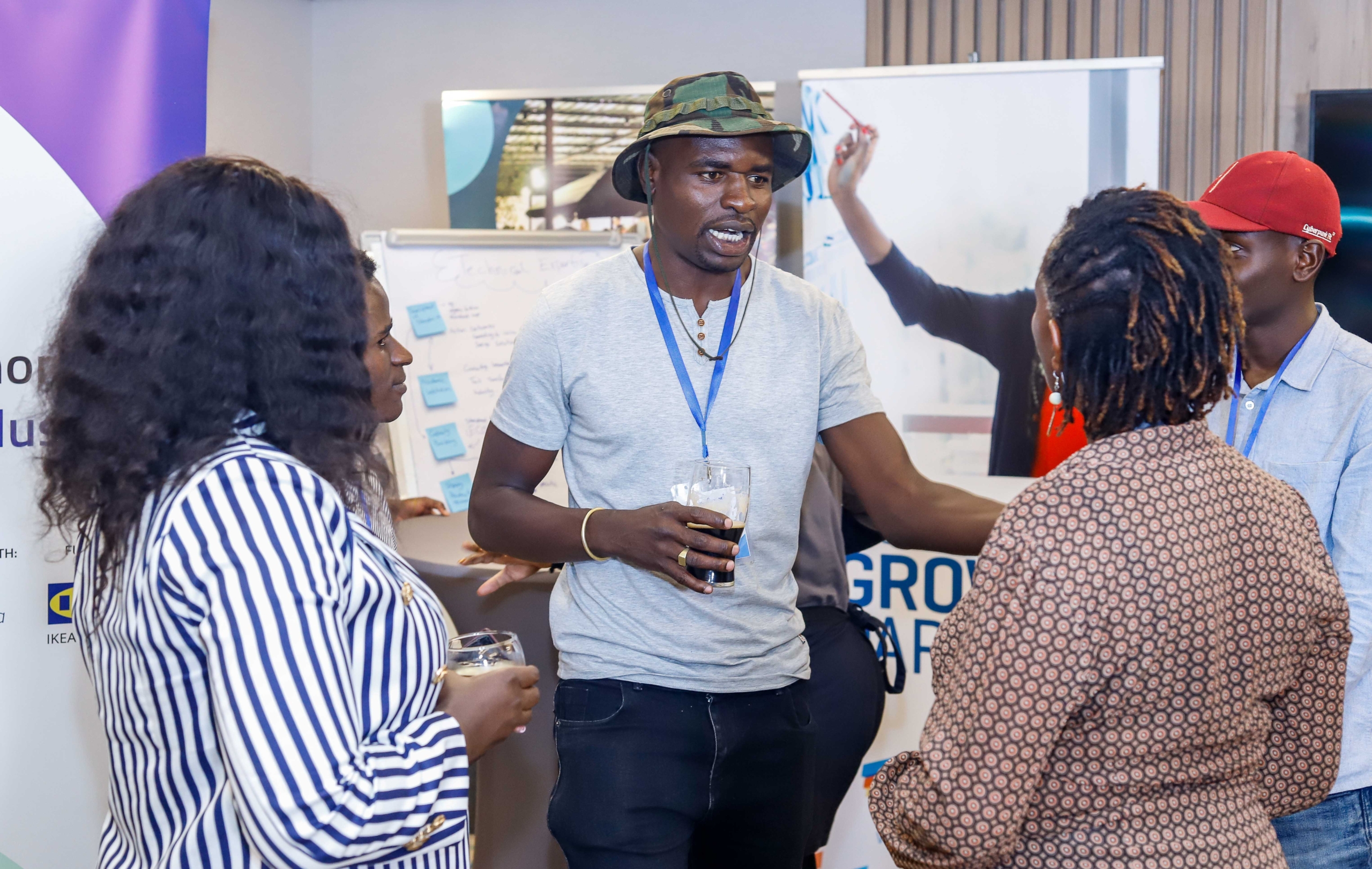
Following the circular economy stakeholders forum, a baseline survey was conducted to understand the current state of collaboration among stakeholders in Nairobi’s circularity ecosystem. Over time, this survey will track progress on collaboration against the initial baseline and foster a more cohesive circularity ecosystem. As a next step, the results of the baseline survey will be shared with the stakeholder forum participants to discuss collaborative action points based on these results and the above-mentioned breakout sessions outcomes.
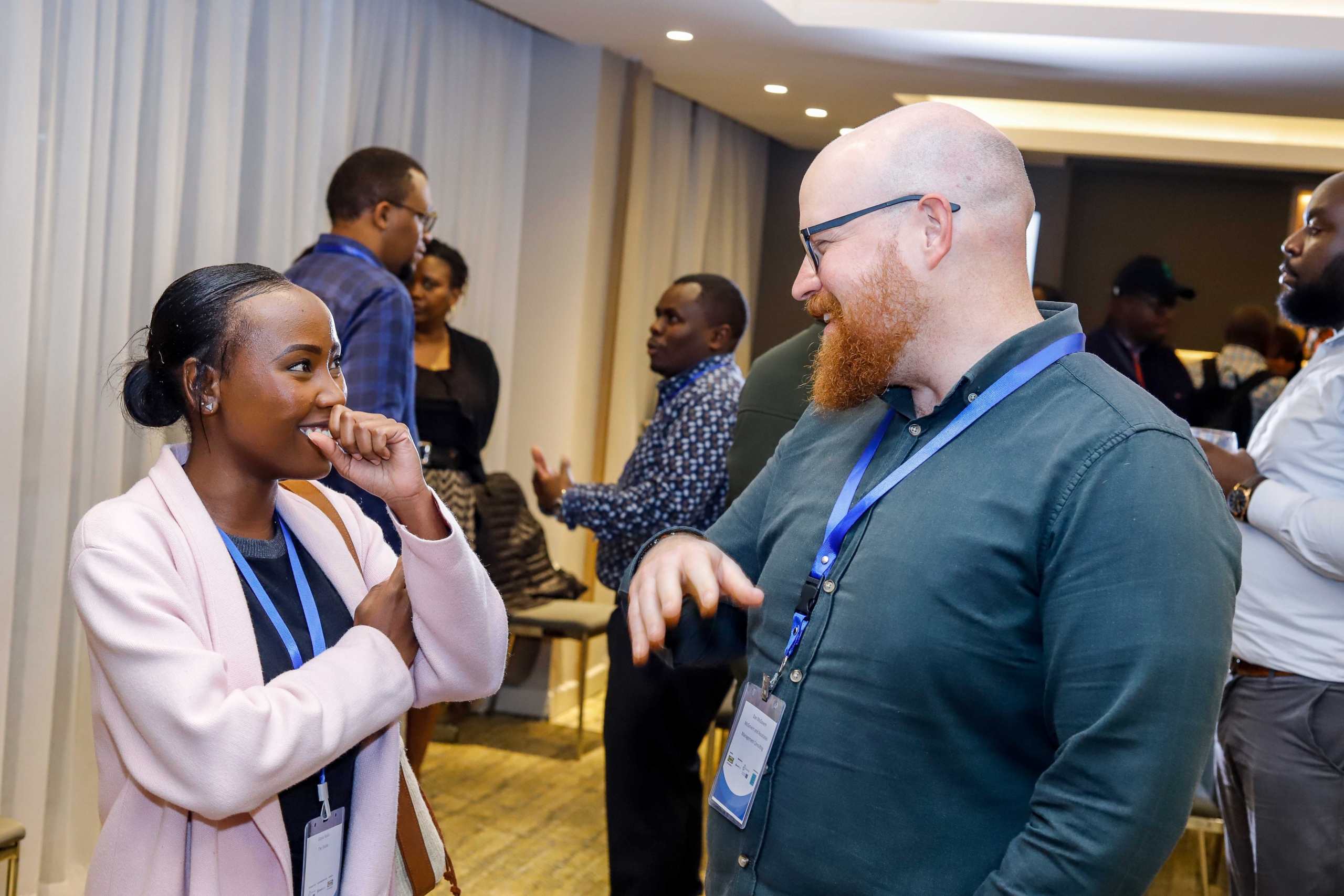
NCN expresses gratitude to all members who participated in the forum, with special thanks to EIT Climate-KIC and GrowthAfrica for their partnership in delivering this event. We’re excited to see the progress that these entrepreneurs make during the Nairobi Circular ClimAccelerator programme and look forward to engaging with them further. To support their efforts and help to enhance collaboration across Circular Economy actors, NCN is establishing a Circular Economy discussion group within our community. We encourage all our members active in this space to join the group!


Join our network
Our network grants you access to a growing pool of invidual and institutional events, resources, opportunities, and in-person connections.